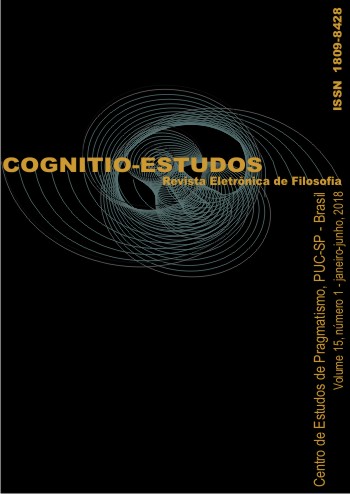An ontology of universals and the convergence of theological and scientific realisms: a Peircean pragmatist approach
DOI:
https://doi.org/10.23925/1809-8428.2018v15i1p50-59Palavras-chave:
Realism, Theology, Philosophical Inquiry, Pragmatism, Universals, PeirceResumo
Contemporary and classical Theological realism seems to converge with an ontology that worries about how to describe the world in terms of formal structures, or, to connect with the philosophical tradition, universals. When it comes to the question whether the objects of a faith have an ontological consistency (and how it does so) a structuralist wonders how a feasible account can be achieved by the means of our possible inquiries, as for example, it is in the case of mathematical structures who lack phenomenical character. The realist, though, faces the problem of accounting for the entities beyond the phenomenical character and still pervasive to our conceptual ammunition. A universal, thus, lacks phenomenical character and nonetheless is necessary in order to make sense of our best scientific theories in the extent of accounting a One-over-many behaviour that is necessary if induction truly works. Universals then, are real in the sense that they are independent of our idiosyncratic ways of conceive reality, they reflect elements of recalcitrant experience. Drawing on the work of the pragmatistic realism of Charles Sanders Peirce, I want to point out a similar explanation of universals with regards to faith and the description of the ontological furniture of the elements of religious experience. They indeed appear to claim for fundamental human experiences that eventually can crop out even from common sense and instinct, they will appear if we inquire well enough and long enough in the quest for understanding the reality of God and the elements of philosophical theology. Scepticism about philosophical theology along with theological anti-realism and nominalism relinquish to engage with the metaphysical aspects of a faith. As opposed to that trend, I aim in this essay to address some fundamental premisses necessary to tackle the debate properly.

